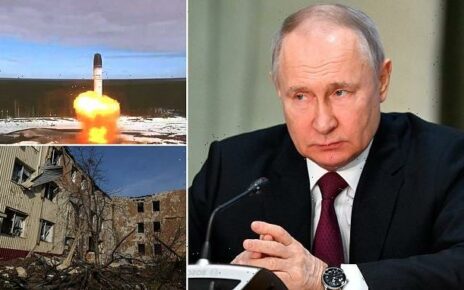ATLANTA (AP) — The Georgia prosecutor investigating the conduct of former President Donald Trump and his allies after the 2020 election is trying to compel U.S. Sen. Lindsey Graham, former New York Mayor Rudy Giuliani and others to testify before a special grand jury.
Fulton County District Attorney Fani Willis on Tuesday filed petitions with the judge overseeing the special grand jury. Fulton County Superior Court Judge Robert McBurney signed a “certificate of material witness” for Graham, Giuliani and others saying that they have been deemed necessary to the investigation.
Representatives for Giuliani and Graham did not immediately respond to requests for comment.
Willis also filed petitions for five other potential witnesses.
The special grand jury has been investigating whether Trump and others illegally tried to influence the 2020 presidential election in Georgia. Trump continues to insist that the election was stolen, despite the fact that numerous federal and local officials, courts and Trump's own attorney general have all said there is no evidence of the fraud he alleges.
Related video: Fulton Co. grand jury reconvenes to investigate Trump
The investigation has been underway since early last year. Willis took this unusual step of requesting the special grand jury to help it along. She noted in a letter to the chief judge at the time that the special grand jury would be able to issue subpoenas to people who have refused to cooperate otherwise.
Willis has confirmed that her team is looking into a January 2021 phone call in which Trump pushed Georgia Secretary of State Brad Raffensperger to “find” the votes needed for him to win the state. She also has said the team is looking at a November 2020 phone call between Graham and Raffensperger, the abrupt resignation of the U.S. attorney in Atlanta on Jan. 4, 2021, and comments made during December 2020 Georgia legislative committee hearings on the election.
It’s not clear exactly what charges Willis could choose to pursue against Trump or anyone else. In a letter she sent to top-ranking state officials last year, she said she was looking into “potential violations of Georgia law prohibiting the solicitation of election fraud, the making of false statements to state and local government bodies, conspiracy, racketeering, violation of oath of office and any involvement in violence or threats related to the election’s administration.”
Source: Read Full Article


